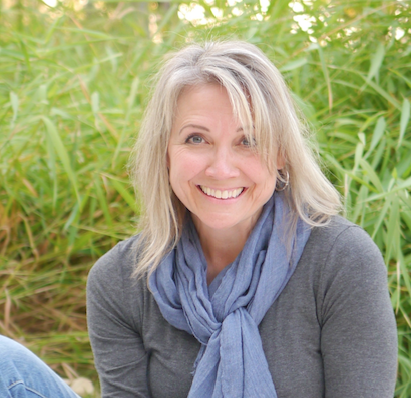There are too many sad things in the world to name them. Everyone has stories to tell.
The ones I’m about to share are not the saddest by any measurement, but they are unnecessary and can nearly instantly be resolved.
Your versions of these accounts will differ in the details. I’m going to bet, though, that the essentials of both are recognizable to you…and have probably occurred within the last month or two.
Good thing: I know just how to make things right.
Better thing: So do you.
Story 1
We were talking about whether electronics and digital devices have overtaken culture in North America.
My young friend, her long, silky black hair pulled into a carefree knot, related this recent experience:
Last night, I was talking to my mom while she was on her phone. I was telling her really important things, but she never really stopped looking at her phone. She was making sounds like she was listening, but I know she wasn’t.
I think it’s sad. She doesn’t even know how much these things matter to me now. It was all about her phone.
We may never have that time back again.
Story 2
I picked out a book from my home library to share with my students. We’re talking about The Great Conversation — the exchanges and “cross-references” of eminent thinkers of the past as they dove into subjects that are still important to us today…things like justice, beauty, war, and world government.
The chapter I read to the kids makes the case for deepening our knowledge about the world and our place in it by studying the great ideas like we mean it — like our ability to thrive in life depends on understanding our cultural DNA.
Penciled into the top right margin of page one in volume one is this note to me, by me:
I started this series on Feb. 28, 2011. If I read 10 pages/day for seven years, I will be able to finish the Gateway to the Great Books series and the Great Books of the Western World series by the time I’m 55.
I’m 55 now.
I made it two chapters into my goal. That’s where my notes end. And I tend to take notes while I read.
I don’t remember getting past page twenty.
What’s Sad
In the case of my young friend — I’ll call her Zara — the sad part is missed opportunity to strengthen a relationship.
It’s the loss of a crucial moment of trust.
It’s the weakening of believing, “I matter to you.”
Zara knew this. Somehow, her mom didn’t.
As for my arrested goal?
Since my teens, I’ve wanted to know what thorough, expansive thought was like. I wanted to fill the maximum fillable space in my brain with the greatest attempts to answer the biggest questions…and “life” sort of got in the way.
In high school I focused on getting good grades so I could earn a scholarship and, when not studying, on working in retail and manufacturing so I could afford to go to school after graduation.
In university, I had to read volumes and volumes of books for my major and minor, none of which I regret…just that there wasn’t a lot of extra time to pursue the classical education I wanted.
Then I served a humanitarian mission abroad and dedicated 24/7 to the cause.
Then more formal university study.
Then marriage and work and children and work and community service and work. By about 2011, when I wrote my longtime ambition in the margin of that book, I had welcomed our children to our family, was living in a cabin in the Rocky Mountain Foothills, and had few excuses.
This week, I’ve looked back into that year to recall what might have interfered with my goal.
It could have been traveling. I was asked to speak at conferences from Alaska to the Canadian Maritimes, and was able to attend a wonderful training in Hawaii and even enjoy a short vacation in warm Cancun.
It was a superb year for adventure and growth professionally…but not, apparently, a year for feeding my hungry brain.
And I never revived that dream to the extent that I was willing to sacrifice for it…until now.
The sadness here?
For sure, it’s a missed opportunity. I could have the familiarity with human genius that I aspired to have by now. Fifty-five would be a great age at which to combine life experience with knowledge and compose some substantial wisdom.
Even Worse
Sadder than abandoning my dream, though, is this: I am not who I wanted to be by now.
It’s not the reading thing. It’s the being thing.
That is the travesty of travesties.
The list of probably botched opportunities in my relatively standard North American life is considerable:
- I could have been the first rep in my country of a thriving, global business.
- I stopped singing at age 24 because someone was annoyed that I sang “all the time.” I love singing…and I’m not much better now than all those years ago.
- I’m likely headed for diabetes because I’ve abused my pancreas so much.
- I could have had a great relationship with my dad if I’d had the courage to talk about what was wrong between us.
- I could have taken an entirely different career path, one I would love to look back on now, if I’d not been so afraid of stepping off the beaten path.
- I could have adopted a beautiful little girl if I’d been better prepared for her sudden appearance in our lives.
- And there’s more.
All of which makes John Greenleaf Whittier’s couplet all the more melancholy:
For all sad words of tongue and pen, the saddest are these, “It might have been.”
The Way Through, Over and Out
Deep breath and square those shoulders, friend. I’m doing the same.
Regret is probably like guilt: an appropriate stopping place on the way back up, lesson learned.
The way through the sadness of missed opportunities,
the way over the wishfulness and self-blame that come with lost chances,
the way out of despondency
is
don’t
make
the
same
choice
again.
It’s the first step in the right direction that matters most, and the only appropriate choice if we plan to get where we want to be.
We have the ability to change.
Second chances are something we seek and make happen, not wait for.
We have it in our power to shut our devices off when someone needs our attention in this fleeting moment.
We have the opportunity to start now on pretty much anything we should have/could have/would have started then.
If the goal — the aim — the aspiration is still alive within us, and if we’re willing to let go of inhibiting feelings of “too late for me,” we can do what we wanted to do in the first place.
We can be the better parent or friend.
We can become the trustworthy, faithful spouse.
We can give from the accumulated capacity we now have.
We can make room for the person we really want to be.
Fact is, we may actually be better positioned for success after a delay…after time…after the sadder but wiser.
Time is now.
Our will is the catalyst.
Believe you can.
I believe you can.
Got to go…
I have some reading and listening to do.
More
I’m mindful, as I write this, of the person who’s affected my hopeful outlook more than any other.
It’s my son, Josh, who won’t be reading this article…at least not in this life.
I think his way of being in the world is how I want to be, too.
Live life to the fullest was his motto.
If you like, you can read our story here.
Strangely, perhaps, it’s not a sad story.
Originally published at medium.com


